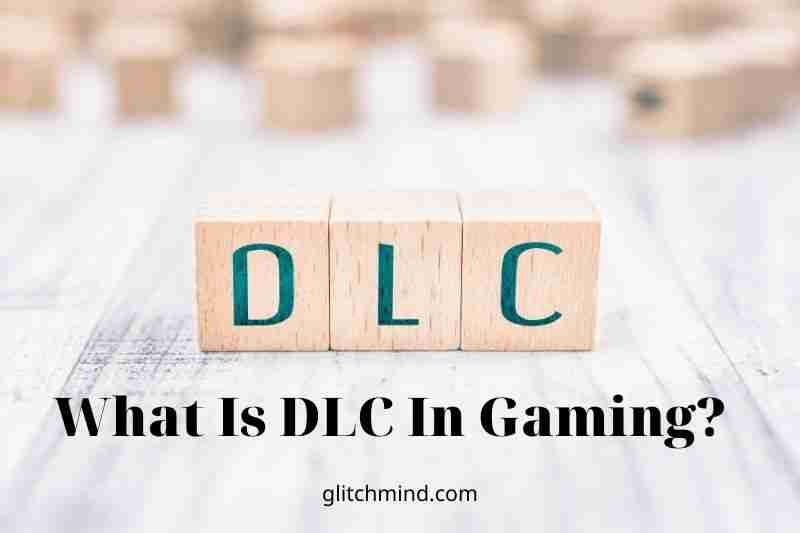What Is DLC In Gaming? DLC, or downloadable content, is additional content for a video game that can be downloaded separately from the base game. DLC can include new levels, weapons, characters, and storylines. It can also include things like new outfits for characters, or new vehicles. DLC is usually released in batches, or “seasons, ” and can be purchased separately or as part of a season pass.
What Is DLC In Gaming?
DLC is an abbreviation for “downloadable content.” It is extra digital material that a player may install on top of a whole video game. DLC may be obtained directly from the game or via a gaming site such as Steam or the Playstation Store. It might be accessible at times. Other times, you may have to buy it individually, or it may be included in the main game packages.
DLC may refer to a broad range of items. Some are just aesthetic updates, such as skins and voice-overs, while others incorporate new locations, narrative, or gaming systems that fully revamp the game.
Some expansion packs provide hundreds of hours of extra gameplay. Developers often use DLC to update a game and keep gamers engaged for months (or even years) after its original release.
Downloadable content is a logical successor to expansion packs in many respects. Role-playing and card games inspired the notion of game expansions. They provided a method for publishers to add material without creating an altogether new game. Expansions often contained goods, characters, or powers that extended the life of a game and kept players interested.
Expansion packs eventually made their way into video games, mainly PC gaming. They were often delivered in the form of discs that players could install on top of a game using their PCs. Expansion packs were trendy in massive multiplayer online games (MMOs), ranging from Ultima Online to World of Warcraft.

The Evolution of DLC in Gaming
The notion of digital game distribution goes back to the 1980s with Atari’s GameLine service. Still, Total Annihilation‘s 1997 real-time strategy game is credited with popularizing DLC when its makers began releasing new material every month. After a few years, Sega, Microsoft, Sony, and Nintendo started to offer DLC for their consoles and portable devices. DLC has been used extensively by franchises such as Guitar Hero and Just Dance to keep gamers interested.
Social media and mobile gaming popularized the notion of microtransactions in the late 2000s, allowing gamers to download new material with a single touch swiftly. As a result, developers were driven to offer unique features that users could purchase constantly. Almost every central console or smartphone game now provides some DLC.
DLC Varieties
DLC comes in a variety of forms for all sorts of games. Some impact gameplay and take up a lot of storage space on your system, while others are hardly perceptible.
Depending on the genre of the game, DLC may contain more tales and levels, new characters, unlocking weapons, bonus items, and other features. DLC may also be aesthetic, such as updating a character’s look with new clothing or modifying their appearance (“skins”). Some DLC maybe bug patches.
Some games have free DLC, which you can get via your console’s online gaming shop. On the other hand, companies are considerably more likely to charge for DLC, mainly if it adds a large quantity of material.
A “season pass” is a bundle deal offered by games with a lot of DLC released over time. Season passes often contain all current and future DLC for a specific game at a reduced price, allowing you to pay for the game’s DLC just once, even if some haven’t yet been published.
1. DLC as a Monetization Method
Developers often divide it into little purchases known as “microtransactions.” These minor purchases are often objects, outfits, or game modes that may be played. Microtransactions are a prevalent method of monetizing free games.
The “season pass” is another method they employ. These are often sold around the game’s first release. It enables gamers to obtain all current and forthcoming DLC published within a specific time frame. They are usually packed at a lesser cost than if the player purchased them individually. These are widely utilized in gaming franchises that are renewed regularly to provide gamers with a consistent stream of material until the next game is published.
Many individuals, however, have attacked season passes, alleging they are costly and lack transparency. Because much of the material in a season pass isn’t available until months after the user buys it, it is tough to determine if it’s worth the money.
Furthermore, many publishers do not include more costly DLC with season passes; instead, they sell it separately.
2. User-Generated DLC
Not every DLC is made available by game creators. Many games also have users that produce in-game content and distribute it for free. DLC made by game players is often referred to as a “mod.” User-generated material may be used to enhance games in a variety of ways. It also often leads to whole subcommunities and forums devoted to creating, distributing, and evaluating game modifications.
The Elder Scrolls V: Skyrim is a superb illustration of this. Even though Skyrim is over nine years old, it still has one of the most prominent and most active modding communities. A single Google search yields dozens of Skyrim modding manuals, databases, and tools. This is mainly because Bethesda Game Studios (the developer) built the game to be mod-friendly.
Community contributions may keep a game alive long after the creator has stopped updating it. For example, Blizzard Entertainment’s Warcraft III was launched in 2003, yet it still maintains a thriving player base. This is owing to the many modifications that are still being held.

The Most Important DLC Features
They are extra or optional content for a given game.
They are often free but otherwise paid for, and they are also less costly than the original game.
DLC is generated by the game’s designers and delivered by the game’s publishers in gaming.
Turtle Rock Studios, for example, created Evolve and the DLC “Evolve Behemoth Monster,” and one of their publishers, such as Sony Computer Entertainment (SCE) or Microsoft, makes it accessible for free on their networks, such as PlayStation Network (PSN) or Xbox Live.
Although players may be downloaded over the internet, most are accessed through publisher websites such as the PlayStation Network Store (PSN) or Xbox Live.
The Best DLC Feature in Gaming
They let players interact with the accessible extra content, extending the game’s playability and durability.
The DLC Packages discount (season pass) is an extra feature that delivers significant value to consumers by enabling them to get content at a lesser rate.
It lets publishers collect revenue early, frequently via pre-orders. It has the extra advantage of not needing them to deliver downloadable content immediately, as with season pass DLC in gaming.
DLC is becoming more popular as more people purchase games online than on physical discs.
DLC is available for the most critical games from major publishers (commonly referred to as titles).
It’s become an essential aspect of the gaming industry, with the capacity to prolong the game’s popularity and income potential for years.
Battle Passes and Season Passes
Season passes allow you to purchase a limited quantity of DLC, both current and future, at a lower cost than if you purchased each DLC separately.
Battle passes are timed passes that provide you access to a series of prize levels that you may unlock by accumulating experience points (XP).
Season passes may be used for both multiplayer and single-player DLC. However, battle passes are only available for multiplayer DLC. These, too, are not without criticism. In reality, low-quality season passes and battle passes that force you to acquire them add to why you shouldn’t pay for DLC and season passes in most circumstances.

Microtransactions
We’ve arrived at practically everyone’s least favorite kind of DLC: microtransactions. These small, repetitive transactions often include cosmetic content or goods such as premium cash, in-game resources, and XP boosters that accelerate your progress.
While there may be a justification for microtransactions, this writer is not interested in making one. You’ve probably heard of problems involving loot boxes, “pay-to-win” gaming, and predatory techniques that force you to regularly part with your money.
Microtransactions contribute to the Games as a Service business model, in which a game is lucrative even after it has been purchased. While it’s great to see creators get a more reliable source of revenue in an otherwise tricky business, microtransactions are often used to cover up bloated, shallow, and missing games.
A prime example is Ubisoft’s ‘time savers,’ a microtransaction in a couple of their games, where the player may pay for a permanent XP increase or other time-saving features to speed up their growth.
Part of the goal is for busy players to enjoy Ubisoft’s games’ narrative promptly or for novice players to catch up with more experienced ones in multiplayer settings. This translates to “pay us to level up quicker.”
FAQs
1. Is DLC secure?
Downloading DLC from reliable providers such as the PlayStation Network, Google Play, or Steam is always secure.
2. What Should Parents Know About DLC?
Even though most games state that you must be 18 to buy DLC, numerous gaming consoles and mobile devices enable consumers to make quick transactions using previously saved credit card information. As a result, parents should implement parental controls to manage in-app purchases.
3. Significant Disadvantages of DLC in Gaming
Even if the substance within looks beneficial, the cost is sometimes high. Season passes, in particular, are incredibly costly, often costing more than half the price of the original game.
Many DLC items are content already in the game, but you pay to receive them right now rather than paying to obtain them later.
Read also:
- How To Start A Gaming Channel? YouTube Gaming Channel In 2022
- What Exactly Is Scrolling? How To Scroll On MacBook?
- Way To Charge Laptop With HDMI or USB Type-C?
- How Much Storage Do I Need On My Laptop? Tips New 2022
Conclusion
To summarize, DLC in gaming, map packs, or game add-ons are not to be confused with downloadable games, which is why they are generally referred to as downloadable contents (DLC), expansion packs, or game add-ons. Furthermore, DLC refers to additional material provided for the user to play with.
